|
In September, over 200 experts from around the globe met in Mombasa to discuss success stories and innovations in effective dog population management. This was the third international Humane Dog Population Management conference – but the first I have attended – and it was an insightful and inspiring event! Over the three days, we attended informative workshops and presentations providing delegates with important information on new mobile technologies, community engagement, shelter medicine, strategic planning, case studies, and population management tools. On the second day, I was given the opportunity to present preliminary findings from our mark-recapture study, which was carried out in Italy and Ukraine - the talk can be accessed here, along with other presentations and posters! It was a fantastic conference in a beautiful part of the world (see photos below) – and I am looking forward to the next one!
0 Comments
The words ‘Artificial Intelligence’, or AI, conjure images of sci-fi films, self-driving cars and talking robots. We tend to think of AI as a futuristic concept, somewhat out of our reach, but in reality it is already impacting the everyday goings on of lives. Google maps can predict the fastest route for your journey, you’re presented with suggestions of what to buy online, and Facebook can automatically recognise images of your friends, all using AI. Artificial intelligence is now making its way into our farming practices and helping us to improve animal welfare. It may not seem like an obvious application of advanced technology, but, when you dig a little deeper, it’s easy to see that AI and animal welfare are a well-suited pairing, especially in the world of pig farming. Pig farming produces over one billion pigs globally each year, producing over 110 million tons of meat (USDA, 2017) and this number is due to grow as per person meat consumption rises. Keeping track of the health and welfare of such large numbers of animals is a huge task and is often carried out by farm staff and vets, which is time consuming and labour intensive. Over recent years, this problem has been worsened by a decreasing number of farmers and increasing herd sizes. One way to tackle the problem is by using modern technology to reduce the workload of the farmer. This idea has led to the rise of a new type of farming called Precision Livestock Farming. Precision Livestock Farming is a way of managing livestock by continuous, automated real-time monitoring of health and welfare, production, reproduction and environment. These technologies do not aim to replace the role of the farmer, but they can help to remove the human error aspect of monitoring and can monitor larger numbers of animals in a quicker time. One way to monitor pigs which is affordable and efficient is to install cameras and look for changes in their behaviour. One branch of the PigSustain project does exactly that; we place cameras in the pig sheds and film the pigs 24/7. We aim to use a machine learning approach to automatically detect and track each pig in a pen without having to physically mark or tag them. This means that we teach the computer what a pig looks like, so that it learns how to detect them on its own. Imagine not knowing what a dog looked like and being shown only photographs of German Shepherds. If someone then showed you a Poodle or a Chihuahua you might not immediately recognise it as a dog, but you would learn from experience, which is exactly what our computer algorithm does. The more we teach and the more examples we feed to it, the better the computer becomes. Our initial results are now published here in the journal Sensors and our detection precision and tracking accuracy are at 97.44% and 95.2%, respectively. The overall aim of the technology is to measure behaviour from individual pigs and to detect when that behaviour changes in some way, for example, if the pig is eating less or moving more slowly than usual. These types of subtle behavioural change can help in pointing the farmer in the direction of a pig which may need a little more attention. Our ultimate goal is to use the technology to predict when a disease or health concern might occur, which would help the farmer in the management of his herd and improve pig welfare. Helen The trajectories of 9 pigs tracked individually in a group pen, without the need to mark or tag. As part of the STRAYS PhD project investigating sustainable methods to control stray dog populations, we are looking for participants to fill in our questionnaire. This questionnaire is open internationally, but has a focus in Bulgaria, Italy and Ukraine. We want to know your opinion on the stray dog problem, so please fill out and share! All links can be found on our website!
Lauren As the newest PhD student to the Animal Welfare and Epidemiology lab it is scary to realise it was a year ago now since I moved to Leeds and started on the first of March 2018. I have learnt so much coming from a behavioural research background and moving into the nitty gritty details of reproduction and development.
I have been getting up to date with the research that is out there, for which I am doing a scoping review. This has been so much fun with some very peculiar unrelated studies rearing their heads, but equally hair tugging annoying, trying to battle with large numbers of references in various softwares (finally finding the godsend website Rayyan). I have attended several conferences, refining some of those vital networking skills down, and am looking forward to having the opportunity to present at some in the near future. I also attended my first walks and talks which was brilliant. I completed a trial run for data collection investigating the effect of in utero sex ratios on reproductive markers in pigs and it is great finally being at a point where the real data collection can begin after ironing out some hiccups that were met along the way! This project involves collecting samples of the reproductive tissues of pigs at slaughter, reared under commercial conditions until traditional slaughter weights. These tissues are then processed and prepared for a range of tests all aimed at evaluating the reproductive capacity of that individual. I want to thank all of my colleagues for helping me with the tissue collection and processing which would be near impossible to have done by myself. So happy to have passed my transfer last week and I am looking forward to seeing what will come out of the next three years! Annika My PhD is focused on nutrition during gestation and early-life in pigs and how diet may influence performance, welfare and gut health. I officially started in October 2017 and I can’t believe how quickly the first year has flown by!
I had the opportunity to speak at two conferences at the beginning of the year, which was daunting but great practice. I also completed my three-month placement over the summer at Primary Diets, a piglet nutrition company. I am glad we decided to do this during my first year as it meant I got to learn a lot about pig nutrition and how the industry side works. As part of this I was able to go out to farm and feed mills visits, as well as attend various training days so I was often out of the office learning about different aspects of nutrition and the company. I also have just finished my first trial and so have spent the past couple of months out on the university farm. I have been looking at how diet may be used to reduce aggression and stress, and have been collecting a variety of performance, welfare, behavioural and cortisol measurements. I really enjoy being out on the farm and Helen, Mary, Annika and Lauren have all been out to help me collect samples (especially saliva which often required two people and various yoga poses!). I used older pigs for this first study to establish whether the dietary change works how we are expecting, before hopefully applying it to sows and/or piglets. I will be starting the data analysis in January and am excited to see what the results are! This first year has been challenging but also really exciting and I am looking forward to the next year ahead! Emily The 10-12th September saw 28 PhD students, postdocs, technicians and PIs attend Walks and Talks 2018. The Collins group were this year's organisers, opting to show off the county in which we’re based by holding the event on the beautiful Yorkshire coastline. The presentations were of a fantastic standard, covering not only a wide-range of animal welfare themes, but also spread across a diverse mix of species. We heard talks on horses, dogs, pigs, cows, kea, elephants, sheep, cats, mice and chickens! Topics ranged from thermography to task preference, accelerometers to attention bias and personality to parasitism. We walked around 7.5 miles through the very pretty Robin Hood’s Bay and along the top of the cliffs, even managing to spot some seals along the way. Thank you to everyone for attending, for bringing along delicious food, for indulging Mary and I in our quiz (!) and for taking the time to share your research and results with everyone. We can’t wait for next year!
Helen Are pigs smart, and if so, how smart? This is a question often asked by the general public and knowing more about animal cognition also helps us understand how best to manage animals in our care. In order to help answer this question, Becky, Richard and Chris from Oxford Scientific films spent the day with us at the University of Leeds farm last Tuesday (17th of July) filming pigs. Becky and the team were keen to show off the range of cognitive abilities pigs possess and the pigs, it turns out, were keen to show off their skills! We started the day off by filming the problem-solving abilities of pigs, which showcased their flexible behaviour and quick learning skills. We had an array of 3 puzzle boxes that opened in various different ways. Our first volunteer pig had never seen the puzzles before the day of filming (very brave on our behalf!), but she quickly figured out how to open all three boxes, and the film crew were very impressed! Then it was onto the next task, which demonstrated spatial problem solving. In this “detour task”, the animal has to figure out how to get to a visible reward by initially walking away from the reward and around a detour to access it. This proved no problem for our second willing volunteer and the film crew got some great footage of her figuring out the problem. Finally, it was onto the pointing task. Here we were aiming to show how pigs can use human-given cues to access a hidden food reward. We got some great shots of the pigs following the pointing gesture to the bowl in which the food was hidden. After the long days’ filming, the pigs headed off for a well-deserved mud bath (see photo below!) while the film crew wrapped up. Lisa, Annika, Emily and I thoroughly enjoyed our day outside in the sun filming with the pigs and we are looking forward to seeing the results on TV next year. We don’t know the screening date yet but watch this space for more information! Some of our soon-to-be TV stars!
At the beginning of July the STRAYS team returned to Pescara, Abruzzo (Italy) to continue the long-term mark-recapture study of the local free-roaming dog population. This is the second of five data collections which will take place over a one year period in this area. Many of the dogs sighted during the first survey in April were sighted again (including the sleepy dog photographed in an earlier blog post). They were easily recognised, despite some shedding off their coats to deal with the warmer temperatures at this time of year. This is a photographic mark-recapture study, meaning that all dogs observed are catalogued so we can track their presence/absence in future studies. Using mathematical formula, this method allows us to estimate how many dogs live in this area and how many dogs enter/leave during the one year study.
The STRAYS team have now arrived in Lviv and are looking forward to seeing if the same individuals are sighted in the study areas here again! Part two of the STRAYS fieldwork has now started! This time, the team have travelled to Lviv (Ukraine) to collect data and observe the city's street dogs. The team did not have to wait long to see their first dog, shortly after arriving the black and white dog (bottom left) was spotted stealing some meat from the rubbish bin! In Lviv, the local Community Enterprise, in addition to the Stray Animal Care team at Vier Pfoten, capture, neuter and release/rehome (CNR) free-roaming dogs in this area. After capture, the dogs are marked with a coloured ear tag to show their neutering/vaccination status. The team have been surveying these local dogs early in the morning, noting those which have been through the CNR programme and recording information about the dog's location and condition. The team have now become familiar with a few of the local dogs, spotting them on more than one occasion. The team will spend another week in Lviv, before returning to the University of Leeds to analyse the collected data - more updates to come!
Earlier this year I had the opportunity to record an interview with The Pig Site to promote the PigSustain project. This website is a great source of information on everything pig related, from the latest research on health and welfare to market trends and future directions for pork production. To learn more about progress to date on PigSustain and our future plans for investigating resilience and sustainability in the UK pig industry, check out the video below:
|
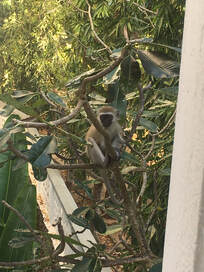

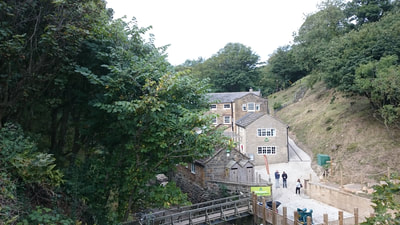
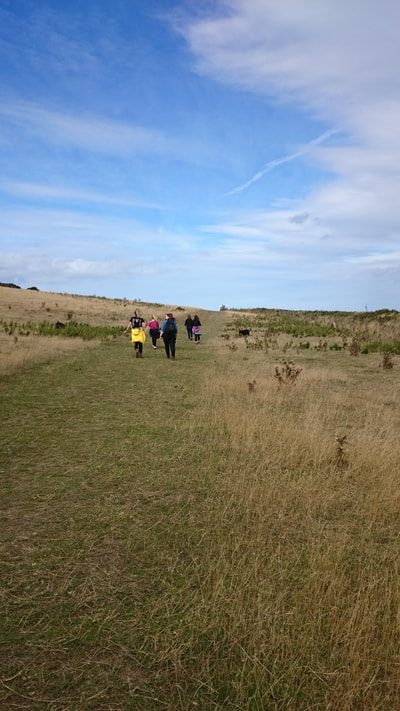
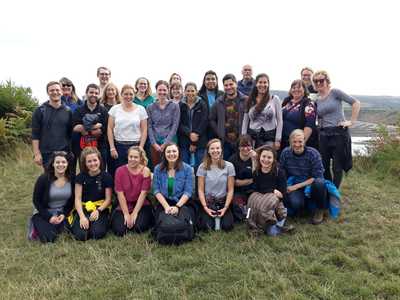
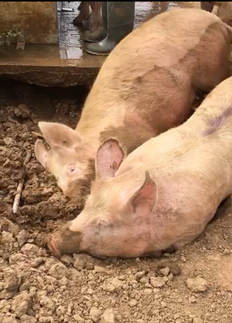
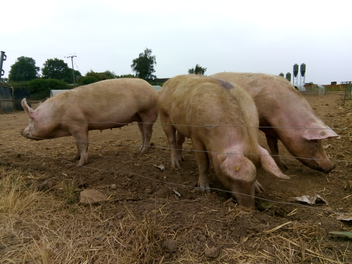
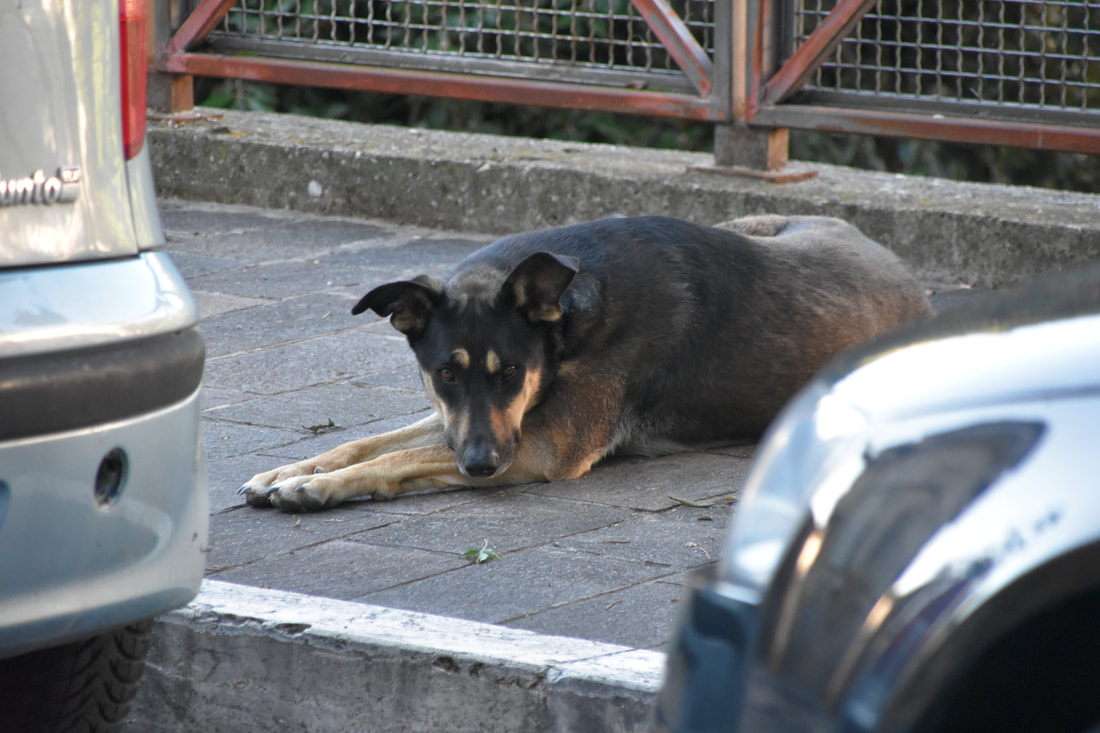
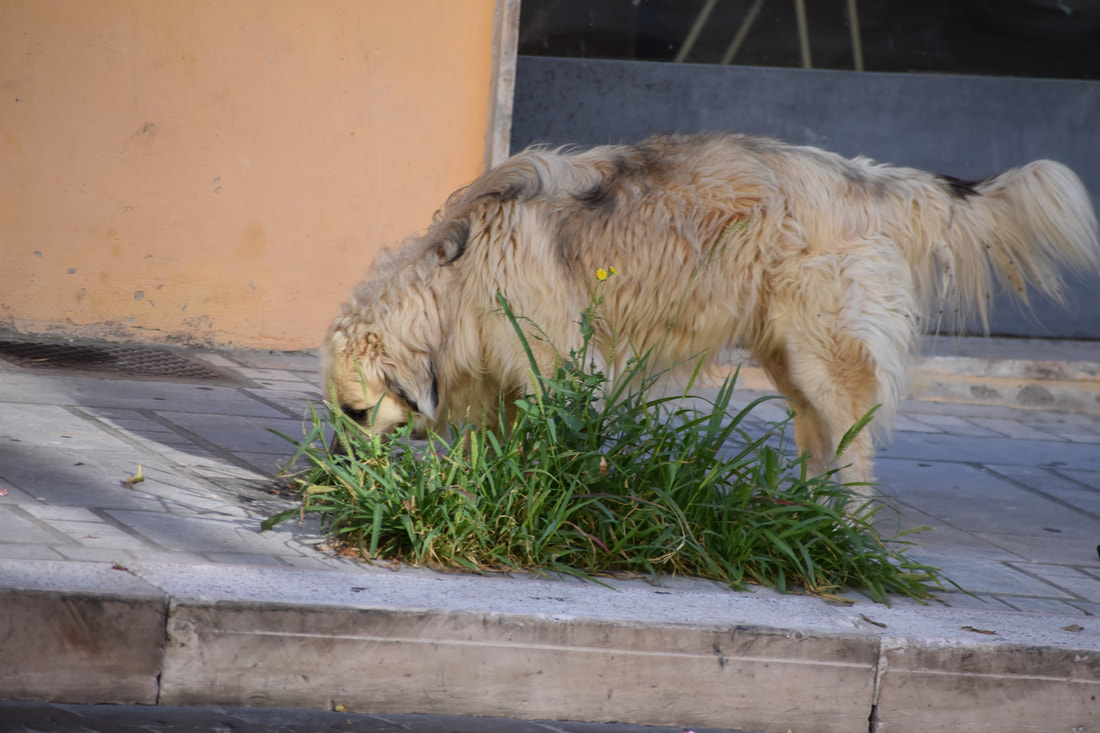
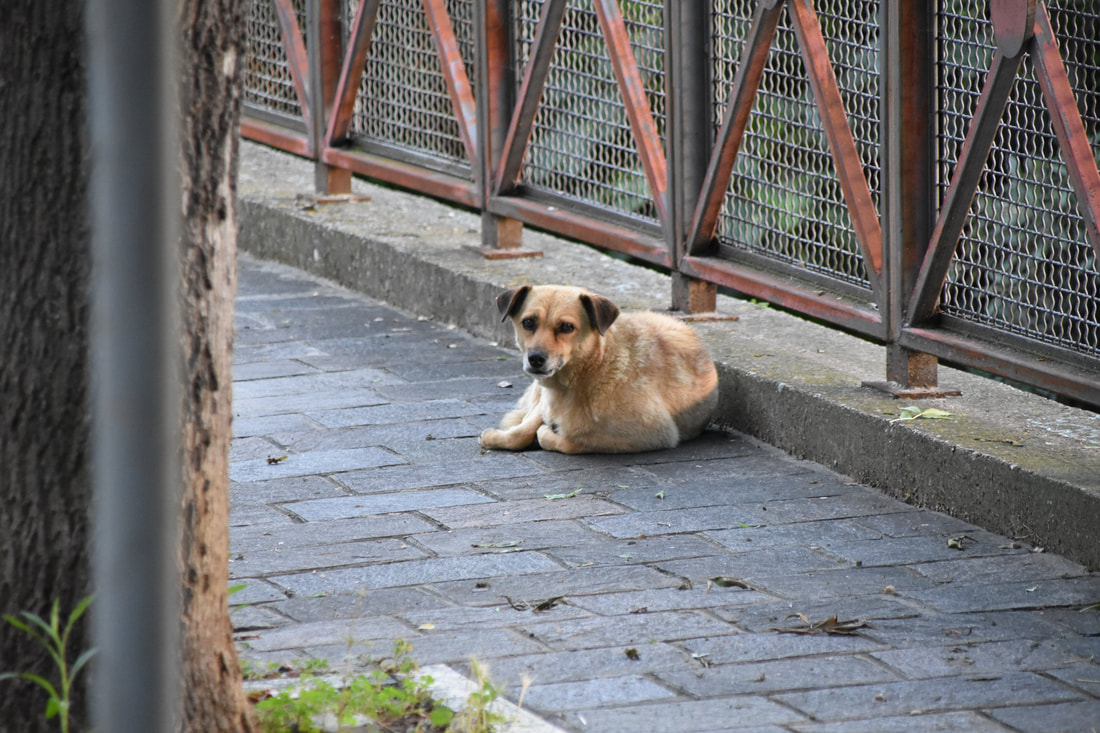
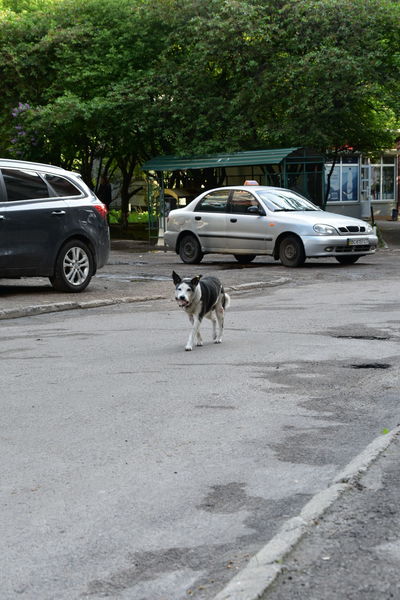

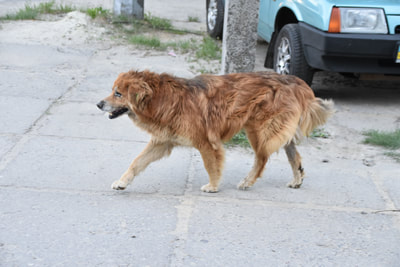
 RSS Feed
RSS Feed
